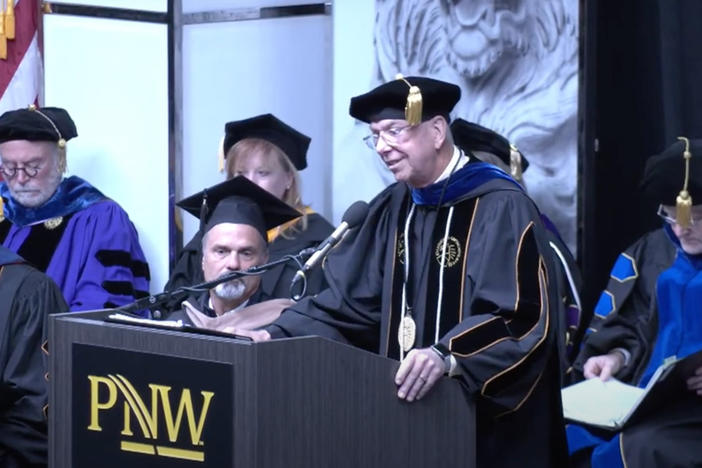Georgia
A university chancellor apologized after mocking Asian languages in his speech

Primary Content
A university chancellor has publicly apologized after making a speech at a commencement ceremony in which he mocked Asian languages.
“We are all human,” Purdue University Northwest Chancellor Thomas L. Keon said in a public apology Thursday. “I made a mistake, and I assure you I did not intend to be hurtful and my comments do not reflect my personal or our institutional values.”
On Saturday, Keon spoke at a commencement ceremony in Indiana where 833 students received degrees from the university. When Keon spoke, he referenced a speech made immediately beforehand by keynote speaker James Dedelow, where he mentioned a made-up language he sometimes uses as a radio host on the air and with his family.
“Well all I can say is … ” Keon can be heard saying in a video of his speech, followed by several indistinguishable words meant to mock Asian languages — “sort of my Asian version” of Dedelow’s remarks, he said.
In the days after, the university defended Keon’s remarks. On Wednesday, an associate vice chancellor, Kris Falzone, told the Chronicle of Higher Education that “Chancellor Keon was reacting to something that the speaker had said, and it was taken out of context.”
But others denounced Keon’s speech.
“His racist imitation no doubt caused pain to the student body and faculty at Purdue University Northwest and so many more,” U.S. Rep. Grace Meng, the vice chair of the Congressional Asian Pacific American Caucus, said in a press release after the incident. “We have to continue to call out instances like these so that they never become the norm in our schools, neighborhoods and nation.”
In his apology, Keon said he would head an “interdisciplinary team” to address issues important to the university’s Asian American and Pacific Islander community and would meet with the student government association.
Purdue University Northwest reportedly accepted one of its largest and most racially diverse classes of first-time freshmen this year. A combined 2.7 percent of students identify as Asian, Native Hawaiian or other Pacific Islander, according to the university.
Copyright 2022 NPR. To see more, visit https://www.npr.org.













You must be logged in to post a comment Login